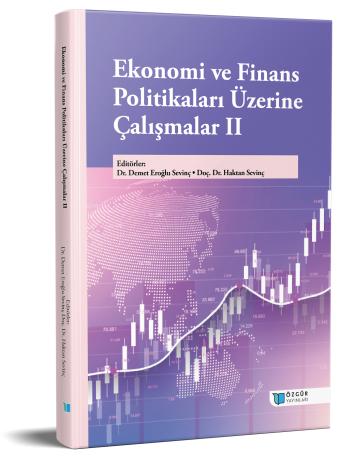
The Relationship between the Current Account Deficit, the VIX Index and the Baltic Dry Index: The Case of Turkey
Chapter from the book:
Eroğlu Sevinç,
D.
&
Sevinç,
H.
(eds.)
2023.
Studies on Economic and Financial Policies II.
Synopsis
The study investigates whether ceteris paribus global scale indicators have an impact on Turkey's current account deficit. In this context, it is aimed to examine the relations between the VIX index, which represents global risk appetite, the Baltic dry index (BDI), which represents global transportation costs, and Turkey's current account deficit. In the analysis, using monthly data for the period 1996:02-2023:07, the stationarity levels of the variables were determined using traditional ADF and Lee-Strazicich (2003) unit root test with structural breaks. Then, within the VAR model, Granger causality test, impulse-response functions and variance decomposition analyses were performed. In the Granger causality test, a one-way causality relationship was found from the VIX index to Turkey's current account deficit and from the Baltic dry index to the VIX index. When the impulse-response functions are examined, it is seen that the response of Turkey's current account deficit to a shock in the VIX index and the response of the VIX index to a shock in the BDI index is first a decrease and then an increase. Finally, in the variance decomposition analysis, it was found that the total change in Turkey's current account deficit was explained most by the VIX index, the change in the VIX index was explained most by the BDI, and the change in the BDI index was explained most by the VIX index. Based on these results, it can be said that the Baltic Dry Index has an effect on the VIX index, and the VIX index has an effect on Turkey's current account deficit. Therefore, it can be said that the expected changes in world trade due to global transport costs also affect international financial markets. In addition, it can be argued that in periods when global risk appetite increases, policy makers can attract international capital flows to Turkey and make a significant contribution to financing and/or reducing the current account deficit, if they implement policies that attract foreign investors correctly and in a timely manner.

